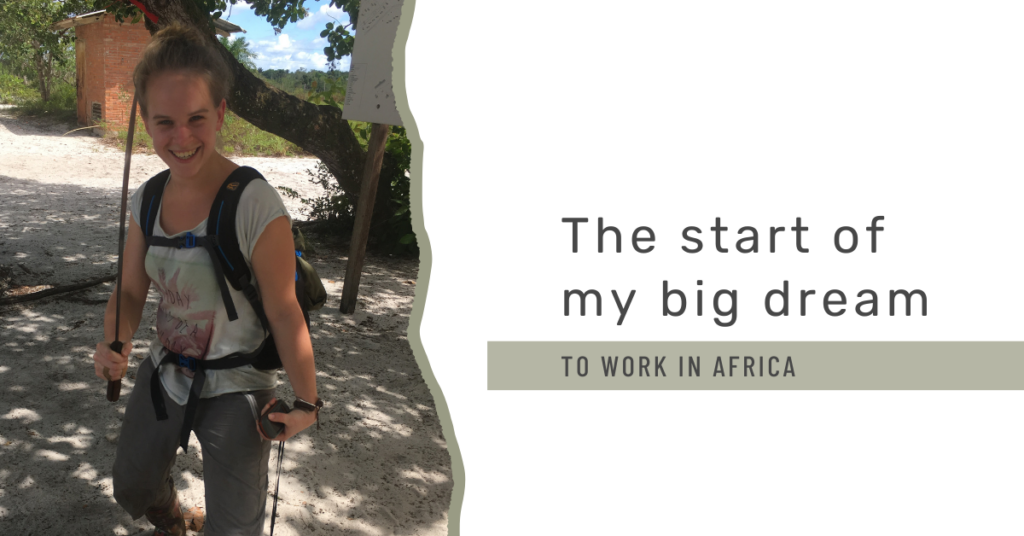Just before Christmas, I successfully completed my first semester of the Master’s in Tropical Ecology and Management of Natural Resources. Over the course of 4.5 months, I earned a total of 25 credits. While this semester was markedly different from the usual academic experience, it proved to be quite enjoyable and enlightening. I had the opportunity to delve into various subjects, some of which I never imagined I’d be studying.
During this period, I engaged in four distinct courses, each offering its own unique perspective and insights. As I write this blog post, I’m nearing the end of the short January semester, where I’ve been immersed in a course focused on R. I’ll also share some details about this course shortly. Completing this semester has been a significant achievement, considering the challenges and adjustments required due to the unconventional circumstances. It has been a fulfilling journey of acquiring knowledge and gaining a deeper understanding of tropical ecology and natural resource management—a field that continually captivates me.
In the next sections, I’ll provide more information about the courses I’ve taken, the valuable insights I’ve gained, and how these experiences are shaping my academic and professional path in the realm of tropical ecology and natural resource management.




Conservation Biology
Kicking off my master’s in Tropical Ecology, I enrolled in the course ‘Conservation Biology.’ It served as an excellent segue, helping me reacquaint myself with the lecture format and offering a concise recap of the key concepts I had previously explored during my bachelor’s degree.
Throughout the course, we meticulously followed the chapters of ‘A Primer of Conservation Biology’ by Richard D. Primack. The lectures were structured to align with the book’s content, providing a systematic examination of various aspects of conservation biology. Our journey began with an exploration of biodiversity—what it encompasses, its intrinsic value, and the multitude of threats it faces in the modern world. We delved into the intricate topic of extinction, delving deep into the challenges small populations encounter when striving to survive.
The course also embraced the practical facets of conservation. We delved into different approaches for safeguarding populations and species, exploring the pivotal role played by protected areas in conservation efforts. Equally significant was our exploration of conservation strategies beyond the confines of these protected zones. Our final chapter, ‘The Challenge of Sustainable Development,’ offered a thought-provoking conclusion to our study.
In addition to the structured lectures mirroring the book’s chapters, we had the privilege of welcoming guest lecturers who shared their expertise and insights. These sessions added valuable perspectives to our learning experience. Moreover, our educational journey extended beyond the textbook. We actively engaged with scientific papers that were pertinent to the subjects we were studying, allowing us to apply our theoretical knowledge to real-world scenarios. This multifaceted approach, from theory to practical application, enriched our understanding of conservation biology and laid the foundation for the more specialized courses that awaited my master’s in tropical ecology.
Restoration Ecology
This course delved deep into the pressing global issue of ecosystem degradation, encompassing not only the botanical aspects but also the various animal species affected by these transformations. At the forefront of our discussions was the central theme of restoring these ecosystems to their pre-disturbance conditions.
The centrepiece of this course was a comprehensive term paper, a collaborative effort within our group. Our chosen focus was a non-forest peatland that had suffered extensive damage due to its conversion into a commercial forestry operation. This transformation, carried out by the previous landowner in the 1950s, had aged the forest to 70 years. Presently, the trees are at a stage ready for harvesting, presenting an opportune moment to present the landowner with a detailed restoration report.
Our report left no stone unturned, providing a thorough rationale for the urgent need for restoration in this area and outlining the specific steps required to achieve this goal. The decision to proceed with restoration now rested with the landowner, but we were determined to do all within our capacity to advocate for it. Having visited the area before preparing the report, we were struck by its latent beauty, waiting to be rejuvenated. The potential for restoration was palpable, and we hope our report serves as a motivation for bringing this vision to life.




Tropical Rainforest Ecology and Conservation
This course served as an engaging introduction to the intricate world of tropical rainforests, their ecology, and the essential principles of conservation. Our exploration began with an examination of the origin and evolution of tropical rainforests, offering a biogeographical comparison across the major tropical rainforest regions. We delved into crucial ecological concepts related to evolution, speciation, and the mechanisms responsible for maintaining species diversity within these lush ecosystems. Additionally, we explored key aspects of community and landscape ecology, delving into the dynamic forces that shape tropical rainforest environments.
Complementing our foundational lectures, we were privileged to have several guest speakers who shared invaluable insights into tropical rainforest conservation on both global and regional scales. These sessions addressed pressing concerns, including current and future threats to biodiversity stemming from human impacts such as forest conversion, fires, and fragmentation.
As someone with a background in Tropical Forestry at the bachelor’s level, I did encounter some overlapping content in this course. However, this served as a welcome refresher, considering the significant gap in my tropical studies since my previous lectures several years ago. Furthermore, gaining diverse perspectives from esteemed professors worldwide was particularly enlightening, offering a glimpse into how experts are actively contributing to the field in which I aspire to make my career.
Population Genetics and Molecular Evolution
Undoubtedly, this course presented a formidable challenge for me. I began with unwavering motivation but soon realized that I was grappling with fundamental knowledge gaps, especially in the realm of genetics. This revelation wasn’t surprising, considering I had never been exposed to genetics in a classroom setting. However, my determination to acquire this knowledge for my future career compelled me to dedicate numerous extra hours to grasp the subject matter.
The course followed the structure of the book ‘Genetics of Populations’ authored by Philip W. Hedrick, with each lecture corresponding to one or two chapters from the book. We delved into various topics, including how selection, mutation, genetic drift, gene flow, and inbreeding influence genetic variation within populations. The lectures also navigated through the intricacies of the Hardy-Weinberg principle, linkage disequilibrium, molecular evolution, and the principles of phylogenetics.
What proved immensely beneficial in unravelling the mechanisms behind genetic variation were the simulations we engaged in. Witnessing these processes unfold before my eyes provided a level of clarity that surpasses the comprehension of mere calculations. Ultimately, I experienced a sense of fulfilment in not only comprehending but also effectively explaining these intricate genetic processes. I eagerly anticipate applying this newfound knowledge throughout my ongoing academic and professional journey.




Statistical Programming in R
While I already have some experience working with R, it was primarily self-taught. Therefore, I decided that taking an official course would be a valuable step in enhancing my proficiency. As I’m currently halfway through the modules, much of the content has been a recap of what I’ve previously learned. However, there are always those nuggets of knowledge that streamline coding processes and make them more efficient.
In this course, our primary focus revolves around two essential R packages: ‘ggplot2’ and ‘dplyr.’ These packages are instrumental in creating plots and facilitating the visualization, structuring, and manipulation of data. Additionally, we delve into various other subjects, including control structures and loops—a section that is entirely new to me and warrants more attention.
My current emphasis is primarily on crafting and coding the final assignment, which serves as a demonstration of our newly acquired knowledge. For this assignment, we are tasked with analyzing a dataset of our choice. I opted to work with the dataset from my bachelor’s thesis, and even now, I’m uncovering new insights. These newfound skills will undoubtedly prove invaluable as I embark on my master’s thesis journey in tropical ecology.
My first semester in the master’s program in ‘Tropical Ecology and Management of Natural Resources’ was a challenging yet incredibly rewarding experience. I delved into a diverse range of courses, rekindling my passion for ecological studies and expanding my knowledge in areas I had not explored before. From conservation biology to genetics and tropical rainforest ecology, each course provided valuable insights that will undoubtedly shape my academic and professional journey. With the first semester behind me, I eagerly look forward to the exciting challenges and discoveries that lie ahead in this remarkable field of study.
Want to support my work?
I spend a lot of time keeping this website filled with educational content and keeping updates about what I do to achieve my dream of working and living in Africa. Do you want to support me? You can buy me a coffee or purchase one of my digital prints. All proceeds will go towards my elephant research and the time spent on this website.







